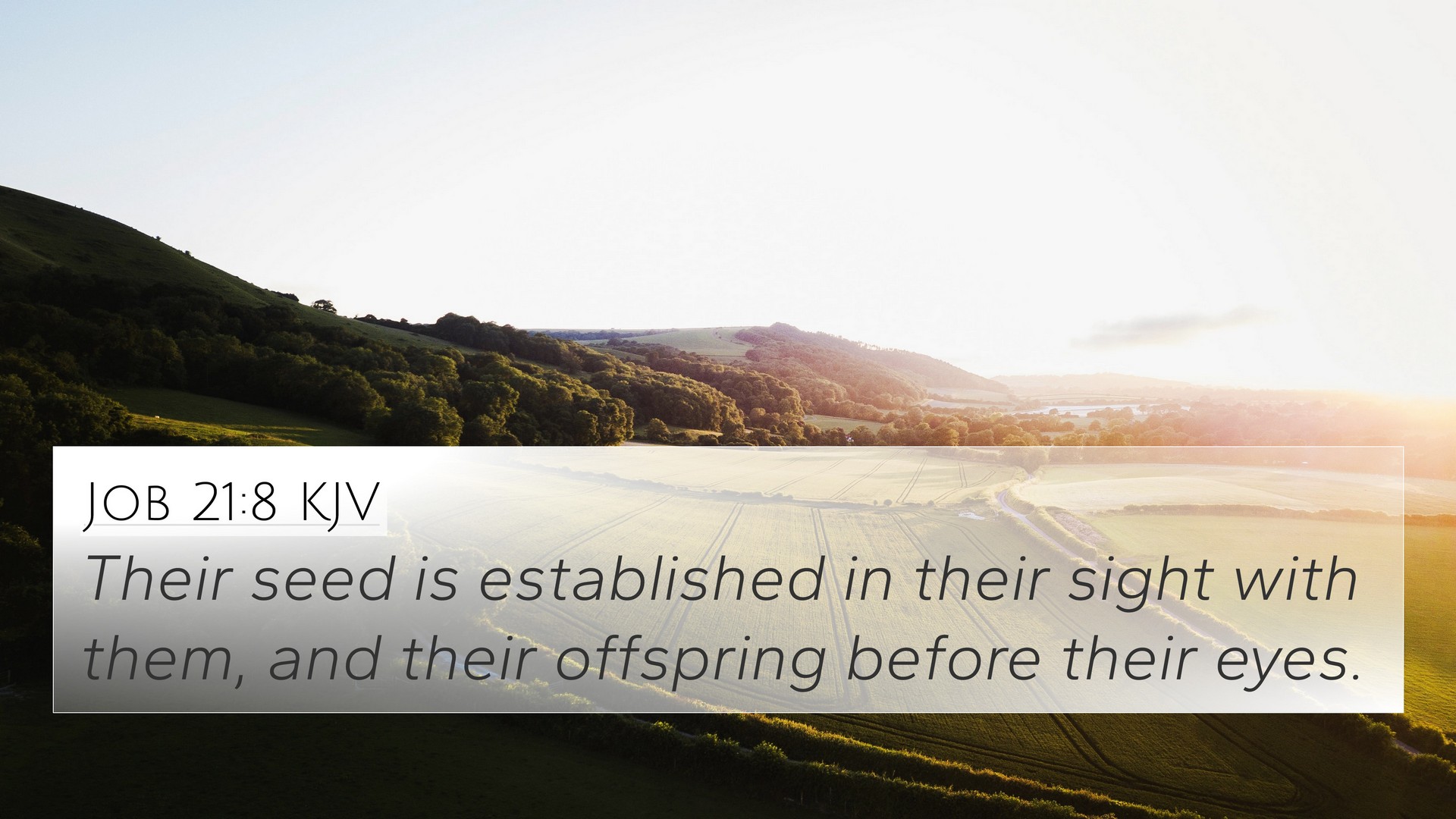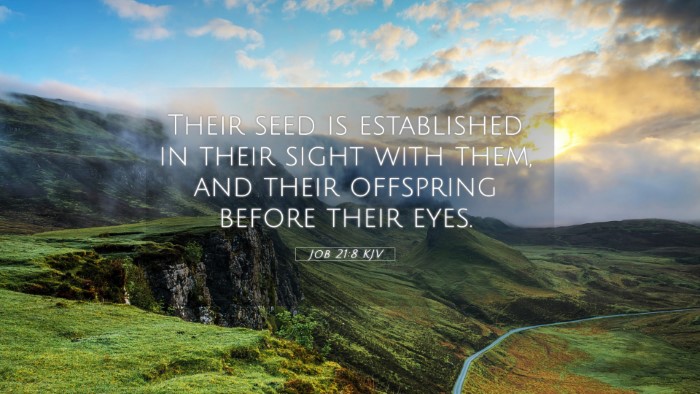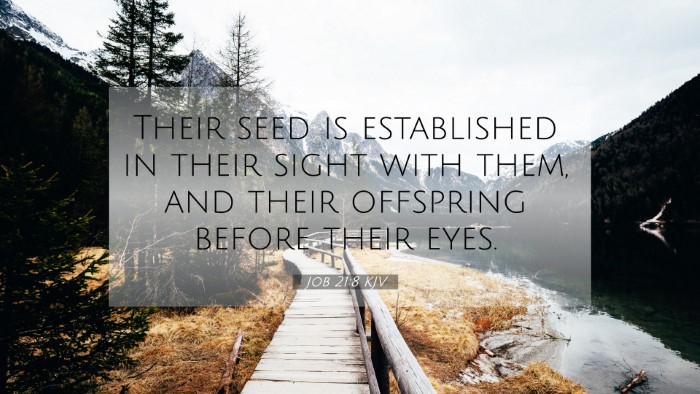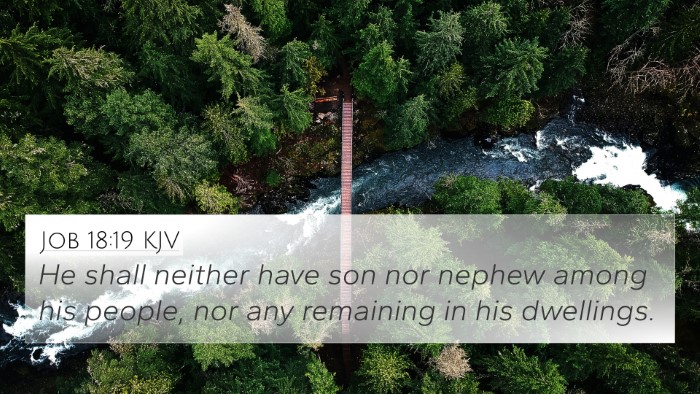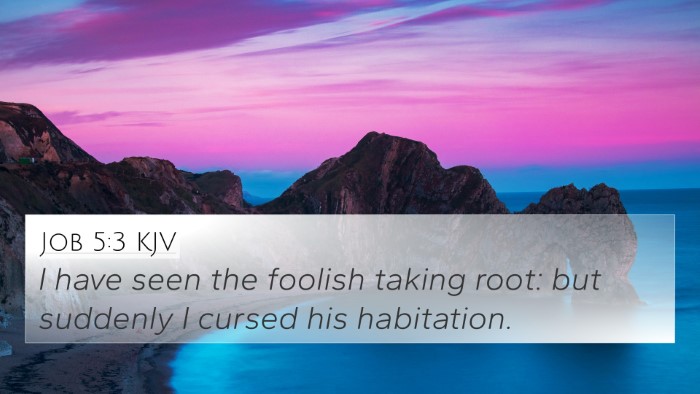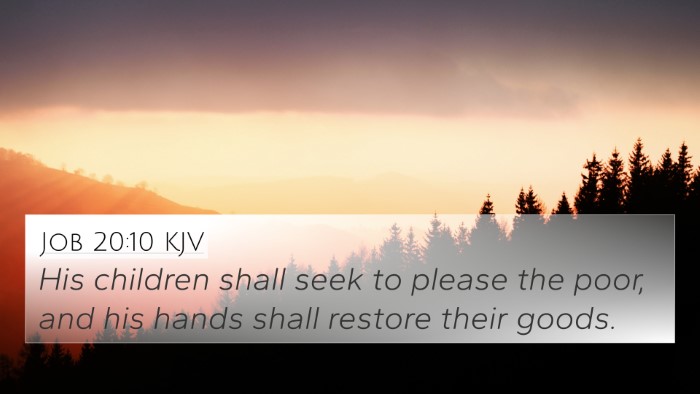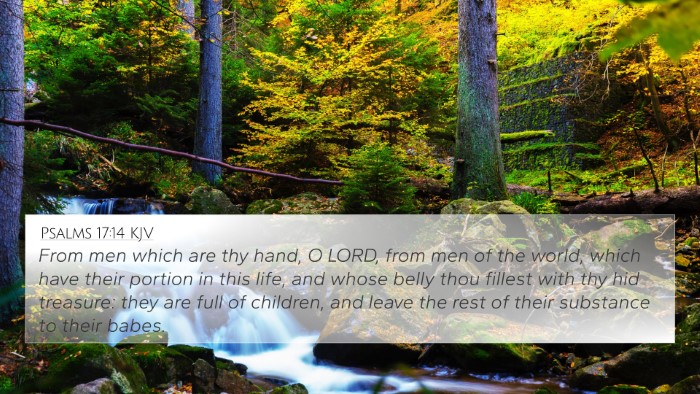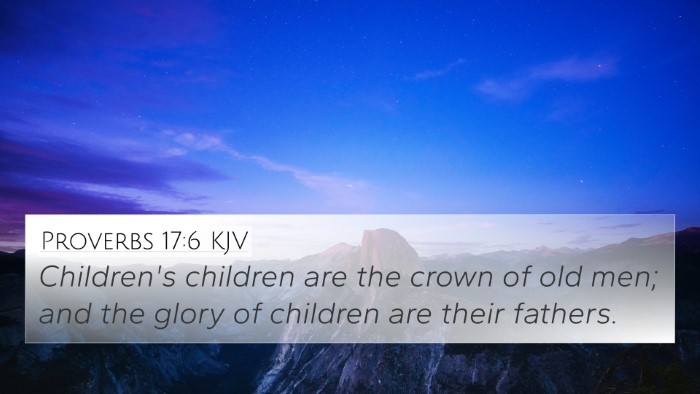Understanding Job 21:8
Job 21:8 states: "Their offspring are established with them in their sight, and their descendants before their eyes." This verse encapsulates an important theme in the Book of Job concerning the contrast between the prosperity of the wicked and the suffering of the righteous.
Context of Job 21:8
This verse is part of Job's response to his friends, who argue that suffering is a direct result of sin. Job challenges the notion that all evildoers face immediate punishment, emphasizing that many of them prosper, have thriving families, and live long lives.
Commentary Insights
-
Matthew Henry:
Henry posits that Job is reflecting on the apparent ease and comfort of the wicked, contrasting their thriving state with his own sufferings. He underscores the fact that just because they seem to prosper does not mean they are justified in their actions.
-
Albert Barnes:
Barnes notes that Job points to the continuation of the wicked's lineage as evidence of their unpunished state. He emphasizes that the longevity of their descendants in apparent security poses a significant question to the idea of divine justice and retribution.
-
Adam Clarke:
Clarke reflects on the societal implications of the descendants of the wicked being secure and established. He highlights that this observation challenges the simplistic view that suffering is always a direct consequence of sin, portraying a more complex view of divine justice.
Thematic Connections
Job 21:8 invites readers to explore broader themes related to justice, prosperity, and the societal implications of sin. Below are some thematic Bible verse connections that illuminate these issues:
- Psalm 73:3-5: The psalmist also grapples with the prosperity of the wicked, expressing frustration and confusion about divine justice.
- Ecclesiastes 7:15: This verse presents the enigmatic observation of righteous suffering and the wicked’s prosperity.
- Proverbs 11:31: This proverb highlights the different fates of the righteous and the wicked, drawing parallels to the reflections in Job.
- Malachi 3:15: The idea that the wicked are blessed while the righteous suffer is echoed in Malachi's text, prompting further reflection on divine justice.
- Romans 9:22: This New Testament verse delves into the sovereignty of God, touching on themes of mercy and justice.
- Matthew 5:45: Jesus speaks on God's impartiality regarding good and evil, emphasizing that the sun rises on both the just and unjust.
- Hebrews 12:6: This verse underscores the discipline from God, suggesting that suffering can serve a purpose and is sometimes an indication of God’s love.
Bible Cross-References
To foster a deeper understanding of Job 21:8, consider these Bible cross-references and their connections:
- Psalm 37:1-2 - Highlights the need not to fret over evildoers, reinforcing the idea of their transience.
- Job 12:6 - Job reinforces the theme of the wicked thriving securely, presenting a dilemma for his understanding of divine justice.
- John 9:2-3 - Jesus explains that suffering does not always correlate with personal sin.
- 2 Peter 2:9 - This verse speaks about God's ability to deliver the righteous while reserving judgment for the unjust.
- Revelation 20:10 - The ultimate fate of the wicked is revealed, providing an eschatological resolution to the disparities seen in life.
- Isaiah 57:1-2 - The righteous can perish, but they are taken to peace, suggesting divine consideration beyond mere physical existence.
- Job 4:7 - Job's friends echo a common belief about retribution—questioning who has been innocent and has suffered.
Conclusion
The exploration of Job 21:8 reveals profound insights into the nature of suffering and the complexities of divine justice. By utilizing tools for Bible cross-referencing, readers can engage in a comparative Bible verse analysis, illuminating the intricate ties between Job's lament and the wider scriptural dialogue on righteousness and suffering. This examination encourages readers to delve deeper into how these biblical texts interconnect, providing a broader understanding of theological themes.
